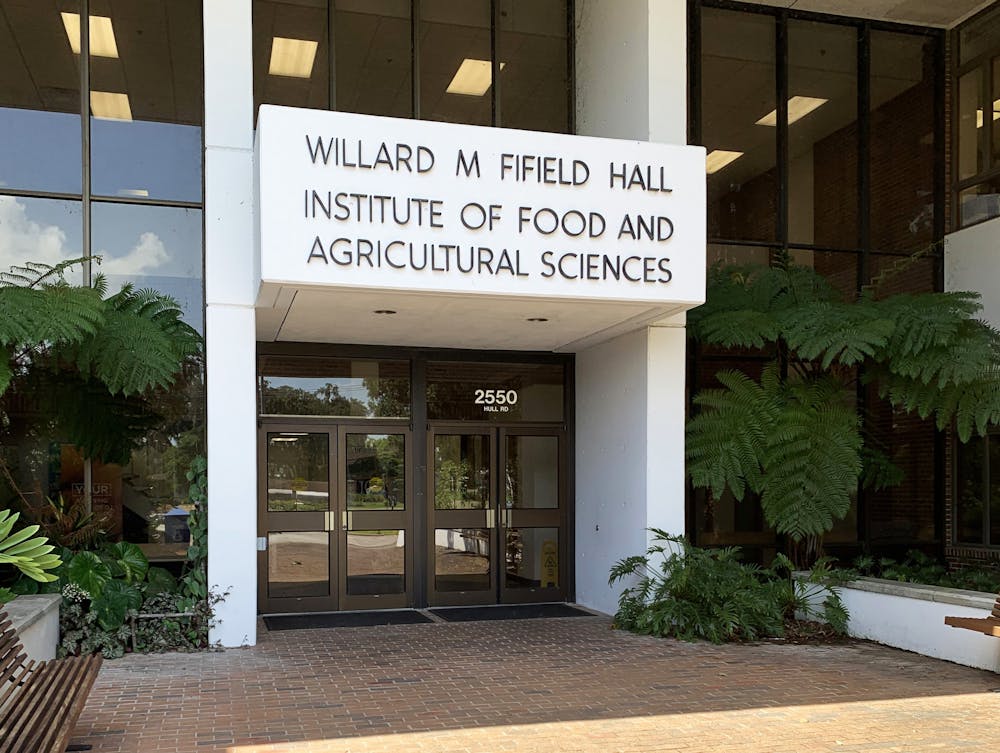A UF alumnus who altered the agricultural world has returned to teach students how to combat the effects of climate change on crops.
Carlos “Charlie” Messina, a UF horticultural science professor, returned to Gainesville after more than 15 years in the crop modeling and plant breeding industry. With new knowledge on drought-tolerant crops, he wanted to work where he could improve the health of crop returns while teaching UF plant breeders efficiency.
Jim Jones, a 78-year-old professor who was one of the first people to develop models and genetically modify crops in the 1960s, mentored Messina as he pursued his Ph.D. He said Messina was one of the first professionals brave enough to tackle plant breeding with technological and mathematical modeling.
“If you really want to advance the science frontiers, you’ve got to be a little bold,” he said. “And he does that.”
Jones said Messina’s work could help farmers and greenhouse growers best choose what crop varieties to plant.
Messina said UF is the best place for him to figure out ideal growing conditions, increase food production, lessen environmental impacts and improve human health.
Messina’s Spring course, “Survey of Breeding Tools and Methods,” focused on the combination of AI and plant breeding. He said artificial intelligence is used to better understand the details in the crop DNA that result in desired qualities.
Julie Cromie, a 24-year-old Ph.D. student in the plant molecular and cellular biology program, said the course gave her a glimpse into the tools being used by professionals.
She said normal crop systems are starting to face less predictable problems, like climate change and artificial intelligence. She said Messina’s experience and methods will allow students to answer relevant biological questions with an accuracy they’ve never had before.
He will show students how to analyze data sets and understand new modeling styles in Fall. Crop modeling — the use of mathematical equations to describe crop genetics, management and its interaction with the environment — helps determine crop growth.
Mathematics, quantitative thinking and technologies combining genomics and crop models are the future and upcoming professionals need to understand how to use them, Messina said.
Contact Kyle Bumpers at kbumpers@alligator.org. Follow him on Twitter @BumpersKyle.
Kyle Bumpers is a fourth-year journalism major and the sports editor of The Alligator. In his free time, he cries about Russell Wilson and writes an outrageous amount of movie reviews on Letterboxd.






